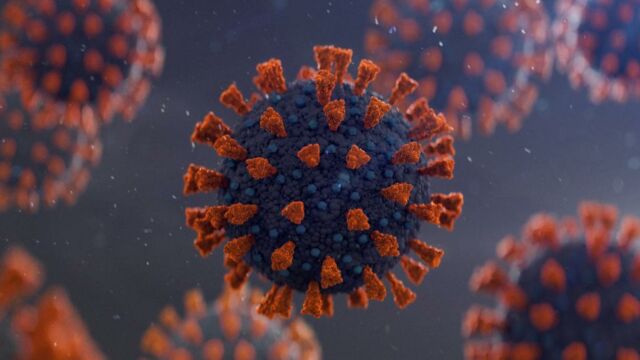India labels the new ‘Delta Plus’ as a variant of concern

India has identified twenty-two cases of a new concerning ‘Delta Plus’ coronavirus variant, otherwise known as B.1.617.2.
A mutated version of the Delta variant has been reported in India; federal health secretary Rajesh Bhushan revealed in a news conference that as many as 22 cases of the mutation have so far been identified in Maharashtra, Madhya Pradesh and Kerala.
Discover our latest podcast
What do we know about the Delta Plus variant?
The mutation, now labelled as Delta Plus, has been classed as a variant of concern by the Indian health ministry as officials believe the B 1.617.2 to be even more transmissible than the original Delta strain - which is already up to 60 times more contagious than the Alpha variant.
More under this adMore under this adThe Delta Plus variant was initially detected in Europe in March this year, but the variant was only brought into the public domain on the 13th of June. Officials are unsure as yet how widespread the new variant is, as genome sequencing has not yet analysed enough samples.
However, India’s health ministry revealed that the new variant had been found in the US, UK, Portugal, Switzerland, Japan, Poland, Nepal, China and Russia.
More under this adMore under this adThe three defining characteristics of the Delta Plus variant have also been estimated to be increased transmissibility, stronger binding to receptors of lung cells and potentially a decrease in monoclonal antibody response. Still, more evidence is needed to confirm these features.
Will vaccines work against the Delta Plus variant?
Officials previously warned that the coronavirus would continue to mutate over time, with some variants potentially bypassing the body’s immune response. Virologists are now investigating whether the new Delta Plus variant will be able to flout pre-existing immunity better than the Beta and Delta COVID strains. The concerns come as the Delta Plus variant not only contains all the genetic features of the Delta variant but also the K417N mutation, first identified in the Beta variant.
More under this adMore under this adPublic Health England has confirmed that both the AstraZeneca and Pfizer vaccines are effective against the Delta variant. Still, more data is needed to make the same claims for the Delta Plus variant.
The emergence of the new variant places even more importance on the need for COVID vaccinations. Currently, the UK is in a race with the Delta variant, trying to get as many adults as possible vaccinated so the country can drop coronavirus safety measures entirely by the 19th of July. Vaccine invitations were also extended to all those over 18 recently, with over a million people booking their appointment over the weekend.
More under this ad